With the generous support of the Department of Art History and the School of Cities at the University of Toronto, the public online roundtable “Accessing Art in the Virtual World: A Conversation about Access, Equity, and Diversity in 2020” took place on Thursday, October 15, 2020, during the Universities Art Association of Canada's Annual Conference. The roundtable featured six panellists and one moderator from diverse professional, academic, and cultural backgrounds, and together welcomed an international audience of nearly one hundred participants. The ninety-minute roundtable grappled with how the lockdown and the internet highlight significant connectivity and access inequality, and examined how we can continue to research, learn, and engage with art (be it objects, architecture, and cultural spaces) in an accessible, equitable, and diversified manner.
The roundtable panel, moderated by Corrinne Chong, an art historian, curator, and educator, considered the consequences of this paradigm shift to virtual spaces in 2020. Emily Watlington, a critic, curator, and Assistant Editor at Art in America, reminded attendees that as content creators, we are all responsible for the accessibility of that content, both online and in real life, and for disabled communities, the civic engagement and access questions are one and the same. Key Jo Lee, the Assistant Director of Academic Affairs at the Cleveland Museum of Art, asked, “How do we define ourselves as a civic space if we don’t think about how we respond to these civic traumas of our communities?” and reflected on the radical shift in pedagogical practice, patterns of communication, and relationality. Adrienne Huard, an Editor-at-Large at Canadian Art, curator, and doctoral student at the University of Manitoba, emphasized that relationality is everything and museums as historical sites of colonial violence need to become accountable and restructure their approach to mediums and access. Kanika Gupta, a visual artist and graphic storyteller, identified the inclusionary opportunities generated when all mediums are reduced to a screen. Both Kanika and Sequoia Miller, the Chief Curator of the Gardiner Museum of Ceramic Art, shared inclusionary initiatives that bring arts engagement into all spaces and places through the use of resources at our disposal. In thinking about how we document and archive artistic practices and materials, Isabel Pedersen, the Canada Research Chair in Digital Life, Media and Culture, and Associate Professor of Communication Studies at Ontario Tech University, shared the importance of revamping metadata ontology and keyword systems to reflect the kinds of words that individuals used to identify themselves. How does algorithmic bias lead to significant racial and gender discrimination?
Organized by Samantha Chang, Brittany Myburgh, and Lauryn Smith, the “Accessing Art in the Virtual World: A Conversation about Access, Equity, and Diversity in 2020” roundtable prompted participants to re-evaluate their current practices and use the present circumstances as a rich opportunity to creating accessible, equitable, and diversified spaces and places in the coming years. The roundtable recording (with closed captioning) is available via the University of Toronto’s Department of Art History YouTube Channel.
A PDF transcript of this roundtable is available for download in PDF format: ![]() 2020-10-15 Virtual Art Access Transcript.pdf
2020-10-15 Virtual Art Access Transcript.pdf
#virtualartaccess
Resources
Close Looking at a Distance at the Cleveland Museum of Art
Community Arts Space at the Gardiner Museum
Decolonizing Museums: Representing Native America in National and Tribal museums by Amy Lonetree
Desktop Dialogues at the Cleveland Museum of Art
Food to Palette by Kanika Gupta
Indigenous TikTok Is Transforming Cultural Knowledge by Jessie Loyer
Making Digital Materials Accessible How-To Guides by NYU
Principled Artificial Intelligence by Jessica Fjeld and Adam Nagy
TEDx Talks: AI Literacy, or Why Understanding AU Will Help You Every Day by Jordan Harrod


